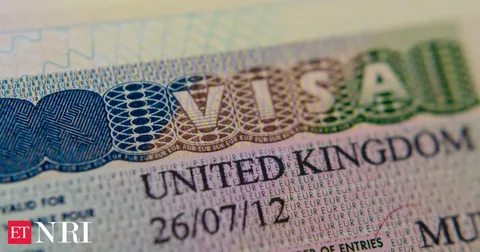Understanding the UK Certificate of Sponsorship: A Guide for Employers and Workers

If you're planning to work in the United Kingdom or hire overseas talent, understanding how the sponsorship system works is essential. One crucial element in this process is the certificate of sponsorship, which plays a central role in legal employment for non-UK nationals under the UK's Skilled Worker visa route.
What Is a Certificate of Sponsorship?
A certificate of sponsorship (CoS) is an electronic document issued by a UK-licensed sponsor to a foreign worker. This certificate is not a physical paper but rather a reference number that confirms the details of the job and the worker being hired. It is required before a Skilled Worker visa can be applied for.
The UK Home Office introduced this system to ensure employers follow the proper procedures when recruiting workers from outside the UK. Every certificate issued contains important information such as the job title, salary, and start date, all of which must meet the eligibility criteria for the visa route chosen.
Types of Certificates
There are two main types of certificates:
-
Defined Certificate of Sponsorship – This type is for workers applying for a visa from outside the UK. Employers need to request this type each time they hire someone from abroad.
-
Undefined Certificate of Sponsorship – Used when the applicant is already in the UK and switching or extending their visa. Employers usually receive an annual allocation of these certificates, which they manage through the Sponsorship Management System (SMS).
Employers must apply for a sponsor license before issuing any type of certificate. Once approved, they can access the Home Office’s system and assign certificates to qualifying workers.
Employer Responsibilities
Holding a sponsor license and issuing a certificate carries significant responsibility. Employers are required to:
-
Ensure the job meets the correct skill level and salary threshold.
-
Confirm the worker has the necessary qualifications.
-
Keep detailed records and report changes such as job title, work location, or early termination.
-
Monitor the employee’s immigration status and maintain compliance with the immigration laws.
Failing to uphold these duties can result in penalties, including suspension or revocation of the sponsor license, which would affect current and future employees.
How to Apply for a Certificate
To issue a certificate of sponsorship, employers must first log into their Sponsorship Management System and either request a defined certificate or assign an undefined one from their allocation. This involves providing detailed information about the job and the individual being hired. The Home Office usually reviews defined certificate requests within one working day.
After a certificate is issued, the foreign worker must use the reference number when applying for their Skilled Worker visa. The certificate is valid for three months, and the visa application must be submitted during this window.
Importance of the Certificate
The certificate of sponsorship is more than just a number. It acts as evidence that the job offer is genuine and meets UK immigration requirements. Without this certificate, skilled workers cannot apply for a visa to work legally in the UK.
Moreover, it gives the government control and oversight over who is entering the country for employment, helping to maintain a fair and lawful immigration system.
Final Thoughts
For both employers and overseas professionals, the certificate of sponsorship is a vital part of the UK immigration process. Whether you're hiring international talent or seeking to work in the UK yourself, understanding how to navigate the sponsorship system can make the process smoother and increase your chances of success.
Make sure to stay updated with any changes in UK immigration policies to ensure ongoing compliance and prevent unnecessary delays.
Read More:- Skilled Worker Visa UK
- Art
- Causes
- Crafts
- Dance
- Drinks
- Film
- Fitness
- Food
- Games
- Gardening
- Health
- Home
- Literature
- Music
- Networking
- Other
- Party
- Religion
- Shopping
- Sports
- Theater
- Wellness


